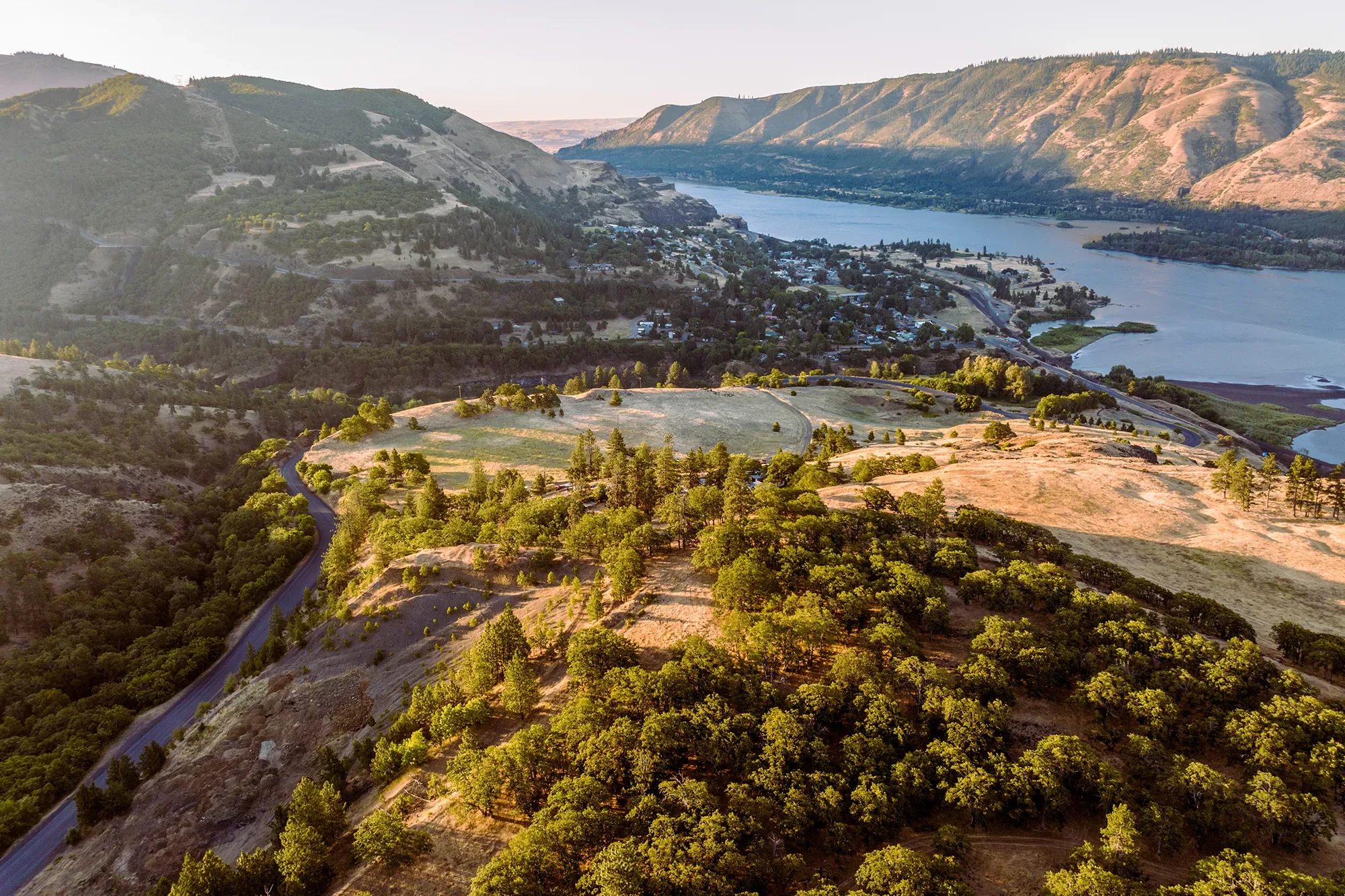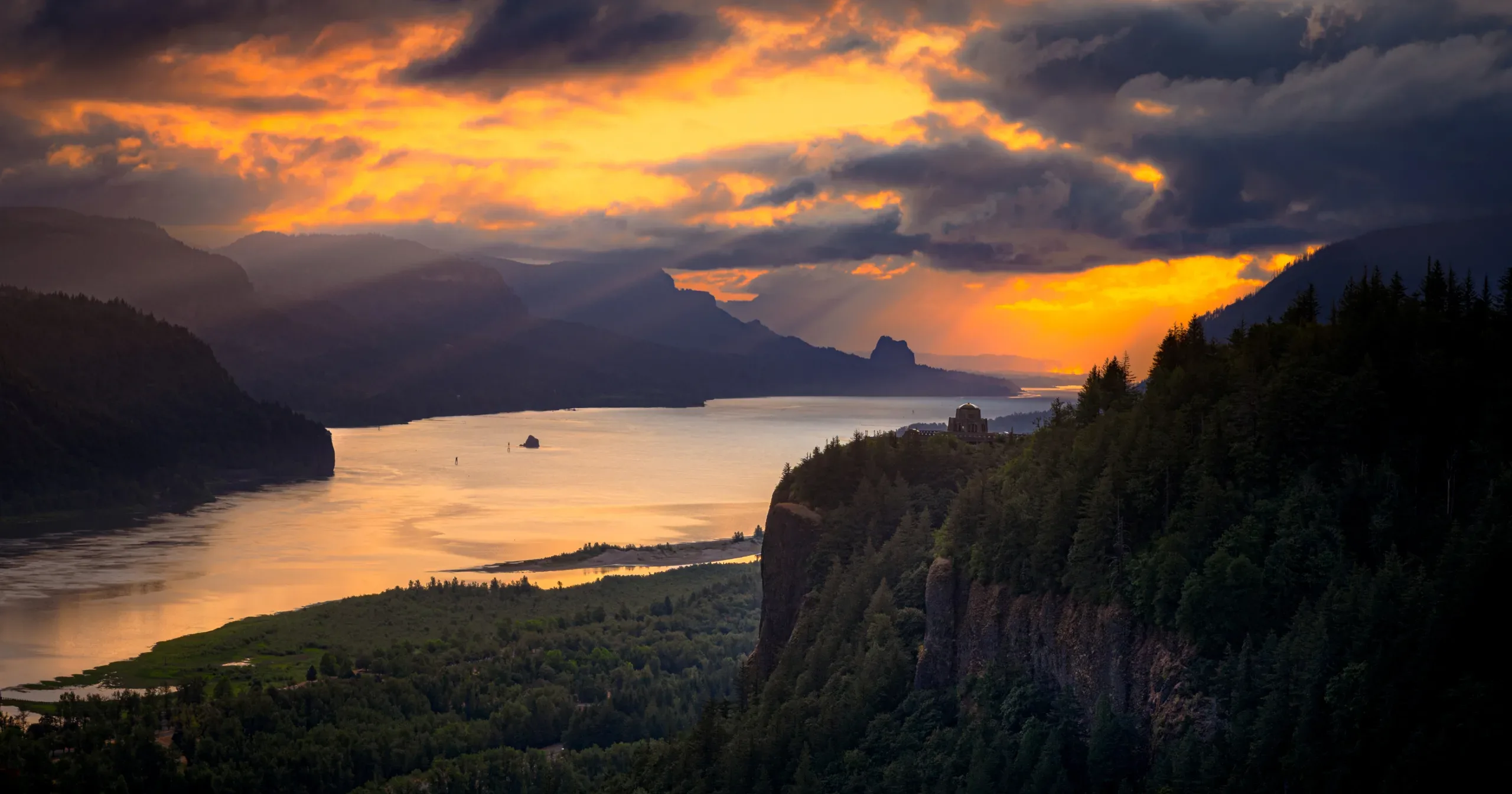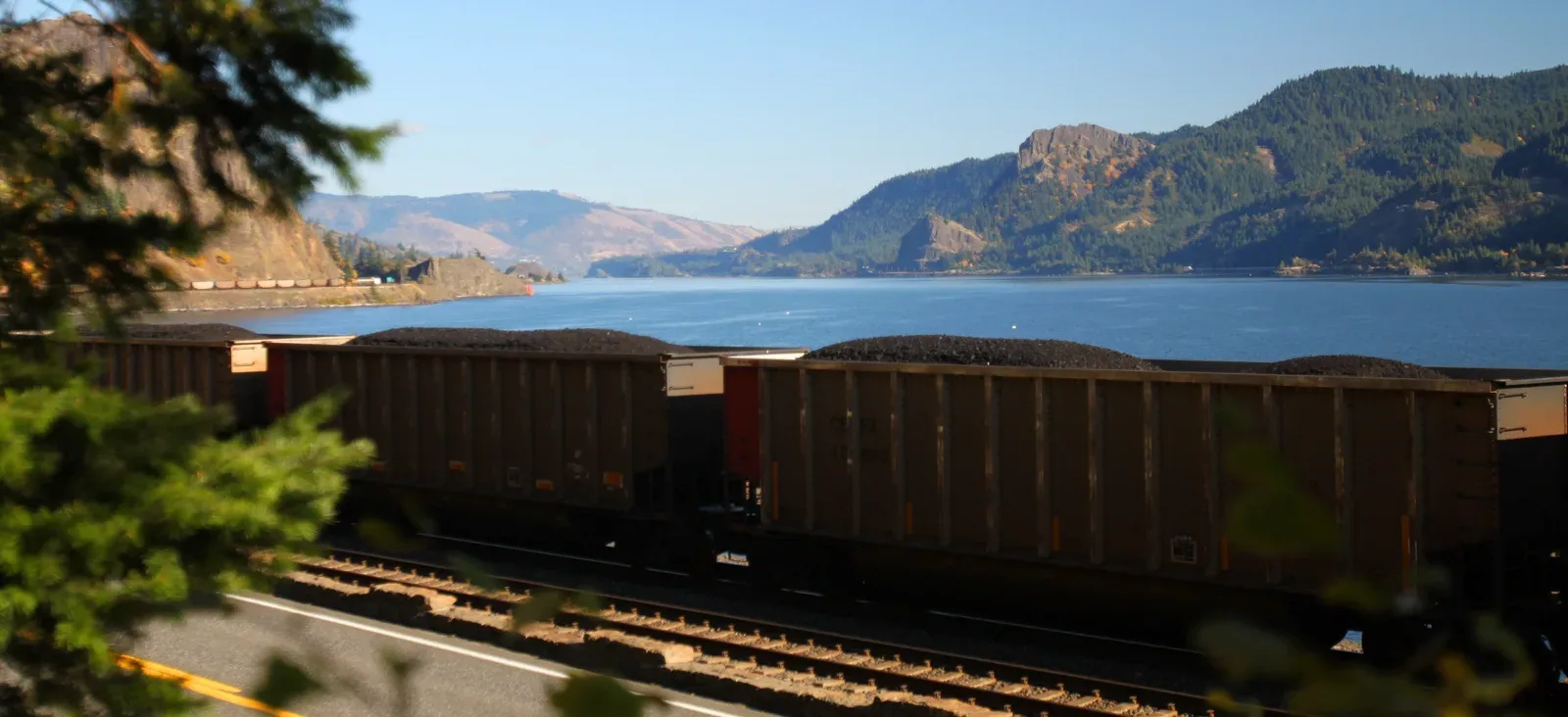From an original seven proposals to build coal export terminals in the Pacific Northwest, just one, sited in Vancouver, Canada, has not been either denied or withdrawn from consideration. The proposals involve transporting coal through the Columbia River Gorge by rail from the open pit mines of the Powder River Basin in Wyoming and Montana to terminals in Washington and British Columbia for export to Asia.
If the other six coal export plans were to go forward, the result would have been dozens of additional coal trains, each more than one mile in length, moving through the Gorge every day. Coal is transported in open-top cars and each car loses about one pound of coal dust per mile. Coal debris litters the Columbia River shoreline, parks, vineyards and sensitive plant and wildlife habitat. The resulting toxic coal dust, in addition to diesel emissions from locomotive engines, pose a huge threat to air quality, water quality, plant and wildlife habitat and human health in the Gorge.
Rail capacity through the Columbia Gorge is near its limit. To accommodate the significant increase in rail traffic for the new coal terminals, new tracks would likely need to expand into environmentally sensitive areas. River access would be effectively cut off at many sites due to increased rail traffic and the accompanying delays would hurt local businesses and risk potentially delaying arrival of emergency vehicles such as fire fighters and paramedics. When burned, the coal would not provide electricity or heat to the Northwest, but the region would receive toxic mercury pollution sent on the “westerly” winds across the Pacific from Asia. About 20 percent of the airborne mercury pollution in the Northwest comes from Asian power plants.
Watch Johnny Cash tribute band Counterfeit Cash bring the coal export issue to musical life in “Coal Train Blues.”
The wild, beautiful Columbia River Gorge National Scenic Area should not be downgraded to a fossil-fuel highway. Coal export offers very little economic benefit to the Gorge and the Northwest, and at great cost to our health, environment and public safety. Six coal export proposals, including one that would have resulted in the U.S.’s largest coal terminal at Cherry Point, WA, have been defeated or withdrawn.
Friends of the Columbia Gorge is a member of the Power Past Coal coalition
Latest News

Celebrating the 20th Anniversary of Friends’ Land Trust

2025 Legislative Sessions: Wins and Challenges in Oregon and Washington



